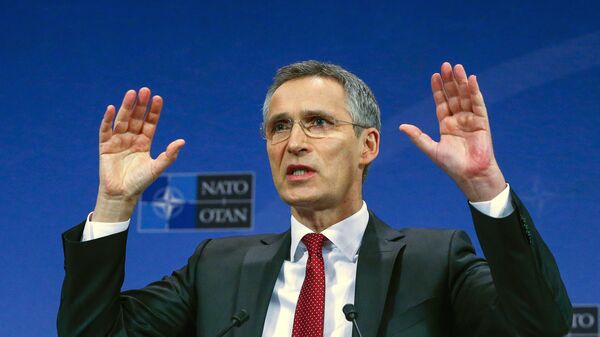NATO Secretary General Jens Stoltenberg has said that if the UK pulled out of the European Union at the In-Out referendum on its membership on June 23, it would result in "a more fragmented security environment."
Stoltenberg told a Politico event in Brussels:
"We don't need more instability, we don't need less cooperation in Europe," adding that the "EU and NATO need a strong UK" to help transatlantic relations and strengthen military cooperation. "Everything that binds us together is good for all of us," Stoltenberg said, adding that that the UK stays in the EU as it spends more money on defense than anyone else in the bloc.
His comments come in the wake of similar views expressed by five former NATO chiefs — Lord Carrington (1984-88), Javier Solana (1995-99), Lord Robertson of Port Ellen (1999-2003), Jaap De Hoop Scheffer (2004-09) and Anders Fogh Rasmussen (2009-14) — who wrote in a letter to the London Daily Telegraph:
"When NATO is trying to reinforce its role in Eastern Europe, it would be very troubling if Britain ended its membership of the EU. While the decision is one for the British people, Brexit would undoubtedly lead to a loss of British influence, undermine NATO and give succor to the West's enemies just when we need to stand shoulder-to-shoulder across the Euro-Atlantic community against common threats, including those on our doorstep."
No Impact
Lord George Robertson, who has served as Secretary General of NATO as well as the United Kingdom's Defense Minister, told a meeting of the Atlantic Council in May:
"What's at stake on June 23 in many ways is not just Britain's role in Europe, but the role of Europe in the world. [A Brexit would have] a dramatic effect on Britain and the wider world who rely on Britain's role in the European Union for stability. Britain is seen as being part of the European Union, a strong partner in the European Union, and its withdrawal from it will have a negative effect and a cascading effect."
Stoltenberg's remarks are the latest in a series of interjections on the Brexit debate by major world figures — including US President Barack Obama, International Monetary Fund chief Christine Lagarde, the US Federal Reserve chair Janet Yellen and German Chancellor Angela Merkel.
One of those charts we might look back on. 233 polls on UK-EU referendum, Sep 2010 until y'day. Remain 41/Leave 46-> pic.twitter.com/8J6osnxlem
— Matthew Goodwin (@GoodwinMJ) 6 June 2016
However, according to Matthew Goodwin, a professor of politics at the University of Kent, grave warnings from top figures are not having much impact on British voters. "Throughout the entire campaign, the opinion polls have been remarkably stable despite high profile interventions from President Obama, (International Monetary Fund Managing Director) Christine Lagarde, the British Treasury, Germany's Angela Merkel and many others," Goodwin told USA Today.


